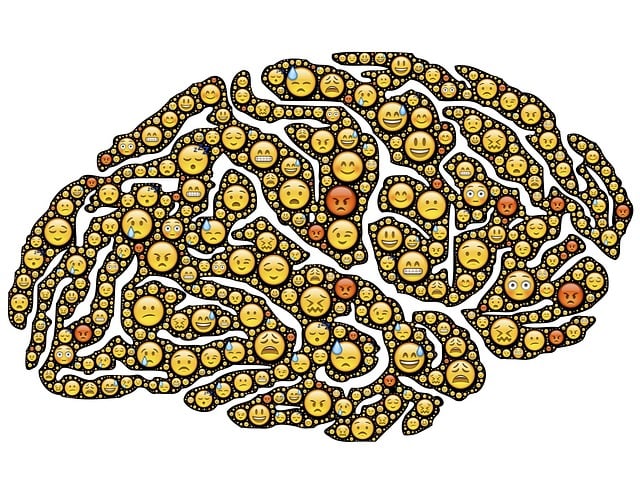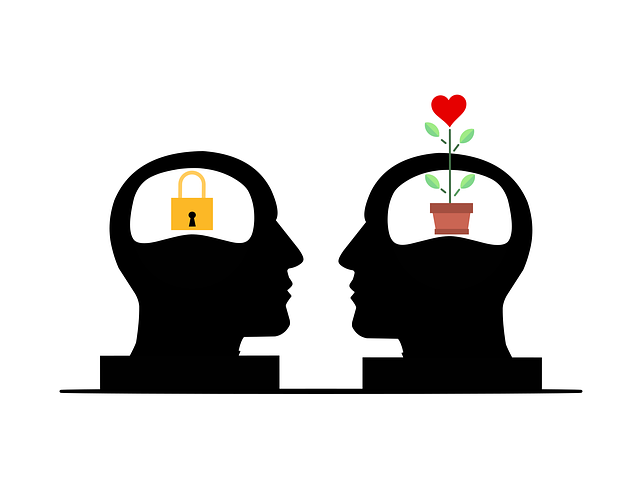Longmont Developmental Disability Therapy leverages the RFM (Recovery, Flexibility, Mastery) framework to build resilience in individuals with developmental disabilities. This holistic approach combines therapeutic interventions like Social Skills Training and Mental Health Education Programs Design with mindfulness meditation and compassion cultivation exercises. By tailoring RFM to individual needs, using creative methods from mental wellness podcasts, and regularly reviewing progress, therapists empower clients to lead more fulfilling lives through enhanced emotional healing, self-awareness, and resilience. Robust assessment tools measure success, ensuring continuous improvement and better outcomes in independence, relationships, and mental health.
In Longmont Developmental Disability Therapy, Resilience, Flexibility, and Mastery (RFM) exercises have emerged as a powerful tool for empowering individuals. This article delves into the foundational principles of RFM, exploring its role in enhancing therapeutic outcomes. We discuss tailored strategies for therapists to adapt RFM to diverse needs, providing a step-by-step guide for effective sessions. Additionally, we examine methods for measuring success and progress, underscoring RFM’s impact on Longmont Developmental Disability Therapy.
- Understanding RFM: A Foundation for Resilience in Longmont Developmental Disability Therapy
- The Role of Resilience Building Exercises in Therapeutic Practice
- Tailoring RFM to Individual Needs: Strategies for Longmont Therapists
- Implementing RFM Techniques: Step-by-Step Guide for Effective Sessions
- Measuring Success and Progress: Evaluating the Impact of RFM in Longmont Developmental Disability Therapy
Understanding RFM: A Foundation for Resilience in Longmont Developmental Disability Therapy

In the context of Longmont Developmental Disability Therapy, Understanding RFM (Recovery, Flexibility, and Mastery) serves as a foundational framework for fostering resilience among individuals with developmental disabilities. This approach recognizes that building resilience is not just about coping with challenges but also about cultivating skills to navigate life’s complexities with greater ease. By focusing on recovery, which involves understanding and managing emotional responses, flexibility in adapting to changing circumstances, and mastery of personal goals, RFM equips individuals with the tools needed to thrive.
The RFM model integrates various therapeutic interventions, including Social Skills Training and Mental Health Education Programs Design, to create a holistic support system. Moreover, its emphasis on active engagement encourages participants to take ownership of their mental wellness, mirroring themes often explored in popular Mental Wellness Podcast Series Production. Through these collaborative efforts, Longmont Developmental Disability Therapy aims to empower individuals to lead more fulfilling lives by enhancing their ability to cope with and overcome life’s challenges.
The Role of Resilience Building Exercises in Therapeutic Practice

Resilience building exercises play a pivotal role in Longmont developmental disability therapy, offering valuable tools to enhance individuals’ ability to navigate life’s challenges. Through these exercises, therapists can foster emotional healing processes and empower clients to build mental fortitude. Techniques such as mindfulness meditation and compassion cultivation practices have been shown to significantly improve coping strategies, allowing individuals to respond adaptively to stressful situations.
Incorporating these therapeutic modalities into treatment plans not only benefits the mind but also cultivates a sense of inner strength and peace. By engaging in regular resilience exercises, clients can develop a deeper understanding of themselves, improve their emotional regulation skills, and ultimately lead more fulfilling lives. This holistic approach to therapy is particularly beneficial for individuals with developmental disabilities, helping them acquire the resources needed to thrive amidst life’s uncertainties.
Tailoring RFM to Individual Needs: Strategies for Longmont Therapists

In Longmont developmental disability therapy, tailoring Resourceful Family Management (RFM) techniques to individual needs is paramount for fostering resilience in clients. Therapists can adapt RFM by considering each client’s unique strengths, challenges, and preferred learning styles. For instance, visual aids and hands-on activities might be beneficial for clients who are kinesthetic learners, while role-playing scenarios could engage those who favor verbal interaction. This personalized approach not only enhances the effectiveness of RFM but also aligns with the principles of mental wellness as outlined in various Mental Health Policy Analysis and Advocacy initiatives.
The Longmont therapists can further integrate RFM into their practice by incorporating strategies from the Mental Wellness Podcast Series Production, which often emphasizes creative methods for promoting mental health. These might include using storytelling to teach problem-solving skills or implementing relaxation techniques during sessions to help clients manage stress. By combining tailored RFM with these innovative approaches, Longmont therapists can offer comprehensive support that not only addresses immediate challenges but also empowers clients to build lasting resilience.
Implementing RFM Techniques: Step-by-Step Guide for Effective Sessions

Implementing RFM (Resilience, Flexibility, and Mastery) techniques in therapy sessions can significantly enhance the effectiveness of Longmont Developmental Disability Therapy. Here’s a step-by-step guide for mental health professionals looking to integrate RFM into their practice:
1. Establish a Safe Space: Begin by creating an environment where clients feel secure and comfortable expressing their thoughts and emotions. This fosters trust, a crucial element in building resilience.
2. Identify Resilience Triggers: Encourage clients to reflect on past experiences that strengthened their resilience. These triggers can range from overcoming academic challenges to handling personal losses. Understanding these moments helps individuals recognize their inherent capacity for growth.
3. Promote Flexibility through Problem-Solving: Engage clients in scenarios that require them to adapt and find creative solutions. This step, inspired by Risk Management Planning for Mental Health Professionals, strengthens their ability to navigate unforeseen circumstances. By encouraging flexible thinking, individuals learn to view challenges as opportunities rather than insurmountable obstacles.
4. Encourage Mastery through Skill-Building: Focus on teaching practical skills that empower clients in various aspects of life. This could involve setting achievable goals, managing time effectively, or enhancing communication skills. Aiming for self-esteem improvement, these techniques enable individuals to take control and make positive changes.
5. Regularly Review Progress: Periodically assess the client’s progress, adapting RFM exercises accordingly. Regular review ensures that the therapy remains relevant and tailored to their evolving needs, much like in Mental Health Policy Analysis and Advocacy, where continuous assessment is vital for effective policy interventions.
Measuring Success and Progress: Evaluating the Impact of RFM in Longmont Developmental Disability Therapy

Measuring success and progress is a crucial aspect of evaluating the effectiveness of RFM (Resilience-Focused Therapy) in Longmont Developmental Disability Therapy. By employing robust assessment tools, therapists can gauge improvements in clients’ social skills training, emotional regulation, and coping strategies. These evaluations not only help track individual progress but also inform the development of personalized therapy plans, ensuring that interventions are tailored to meet each client’s unique needs.
In the context of Longmont Developmental Disability Therapy, successful RFM implementation often translates into enhanced independence, improved relationships, and better overall mental health outcomes. Regular monitoring through standardized measures allows therapists to identify areas of significant improvement and those requiring further attention. Moreover, this data is invaluable for advocacy efforts, informing mental health policy analysis and the design of comprehensive education programs that support individuals with developmental disabilities in their communities.
In conclusion, integrating Resilient Factors Model (RFM) into Longmont Developmental Disability Therapy enhances clients’ ability to cope with challenges. Resilience building exercises, as discussed in this article, provide therapists with practical tools to tailor interventions to individual needs. By following the step-by-step guide and measuring progress, Longmont therapists can effectively utilize RFM techniques to foster resilience and improve therapeutic outcomes for their clients.














